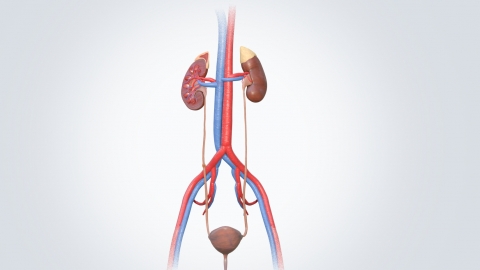What should not be eaten for kidney stones
Generally, patients with kidney stones should avoid eating spinach, pork liver, beets, chocolate, strong tea, and similar foods. They should also avoid self-medicating with vitamin C effervescent tablets, ammonium chloride tablets, furosemide tablets, vitamin D drops, and aspirin enteric-coated tablets. Detailed explanations are as follows:
1. Spinach
Spinach contains a large amount of oxalic acid, which easily combines with calcium in the body to form calcium oxalate, a common component of kidney stones. Excessive spinach consumption increases oxalate concentration in urine, potentially causing existing stones to grow or new stones to form, thus worsening the condition.
2. Pork Liver
Pork liver is a high-purine food. Purines are metabolized into uric acid in the body. Excess uric acid can form urate crystals, which tend to deposit in the kidneys and form uric acid stones. These crystals may also affect the solubility of other components in urine, promoting stone formation.

3. Beets
Beets are rich in oxalic acid, similar to spinach. Once ingested, oxalic acid combines with calcium to form insoluble calcium oxalate. For kidney stone patients, this increases the saturation of calcium oxalate in urine, raising the risk of stone formation and growth, which is detrimental to disease control.
4. Chocolate
Chocolate contains high levels of oxalic acid and theobromine. Oxalic acid promotes the formation of calcium oxalate stones, while theobromine may affect the kidney's ability to reabsorb water, leading to more concentrated urine. This increases the concentration of stone-forming components in urine, creating conditions favorable for stone formation.
5. Strong Tea
Strong tea contains large amounts of tannic acid, which combines with calcium in the gastrointestinal tract to form insoluble calcium tannate. This not only affects calcium absorption but may also deposit in the kidneys when excreted through urine, increasing the likelihood of stone formation. Additionally, strong tea has a potent diuretic effect, which may also lead to more concentrated urine.
II. Medications
1. Vitamin C Effervescent Tablets
Excessive intake of vitamin C effervescent tablets can cause excess vitamin C to convert into oxalic acid, increasing oxalate levels in urine. This makes it easier for oxalic acid to combine with calcium to form calcium oxalate stones, worsening the condition of kidney stone patients. Therefore, self-administration of large amounts should be avoided.
2. Ammonium Chloride Tablets
Ammonium chloride tablets are acidic drugs that cause urine to become acidic after ingestion. For patients with uric acid or cystine stones, acidic urine decreases the solubility of uric acid and cystine, making these substances more likely to crystallize and precipitate, leading to increased or more numerous stones.
3. Furosemide Tablets
Furosemide tablets are potent diuretics that accelerate water excretion from the body, leading to concentrated urine. Concentrated urine increases the relative concentration of stone-forming components, making them more likely to deposit and promote stone formation, which is detrimental to the recovery of kidney stone patients.
4. Vitamin D Drops
Vitamin D drops promote calcium absorption in the intestines. Excessive intake can lead to hypercalcemia, with excess calcium excreted through the kidneys, increasing calcium concentration in urine. This calcium may combine with oxalic acid and other substances to form stones, increasing the burden on the kidneys.
5. Aspirin Enteric-coated Tablets
Long-term or high-dose use of aspirin enteric-coated tablets may affect normal kidney function, leading to renal damage. Reduced kidney function affects the excretion and metabolism of urine, causing impaired elimination of stone-forming components in urine and increasing the risk of stone formation, which is detrimental to the control of kidney stone conditions.
In daily life, adequate water intake should be maintained to promote urine excretion and reduce the likelihood of stone formation. Medical attention should be sought when necessary, and treatment and dietary adjustments should be made under the guidance of a physician.









